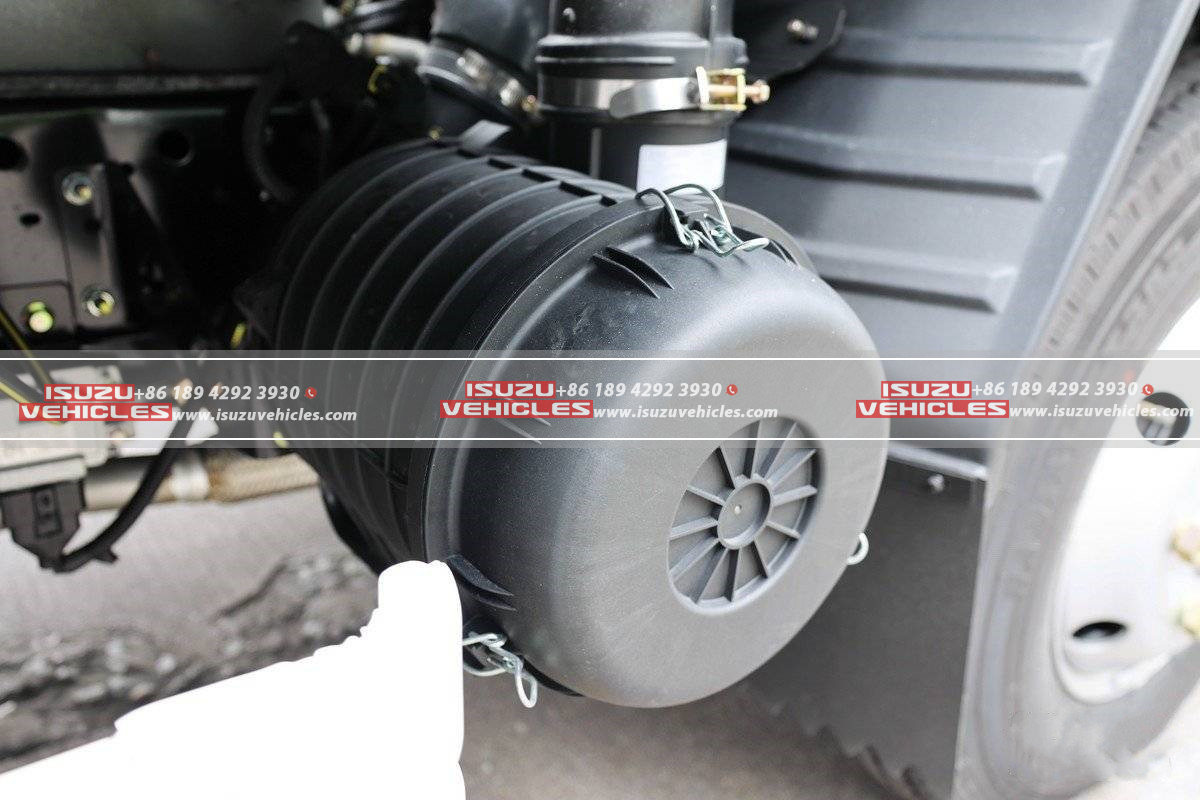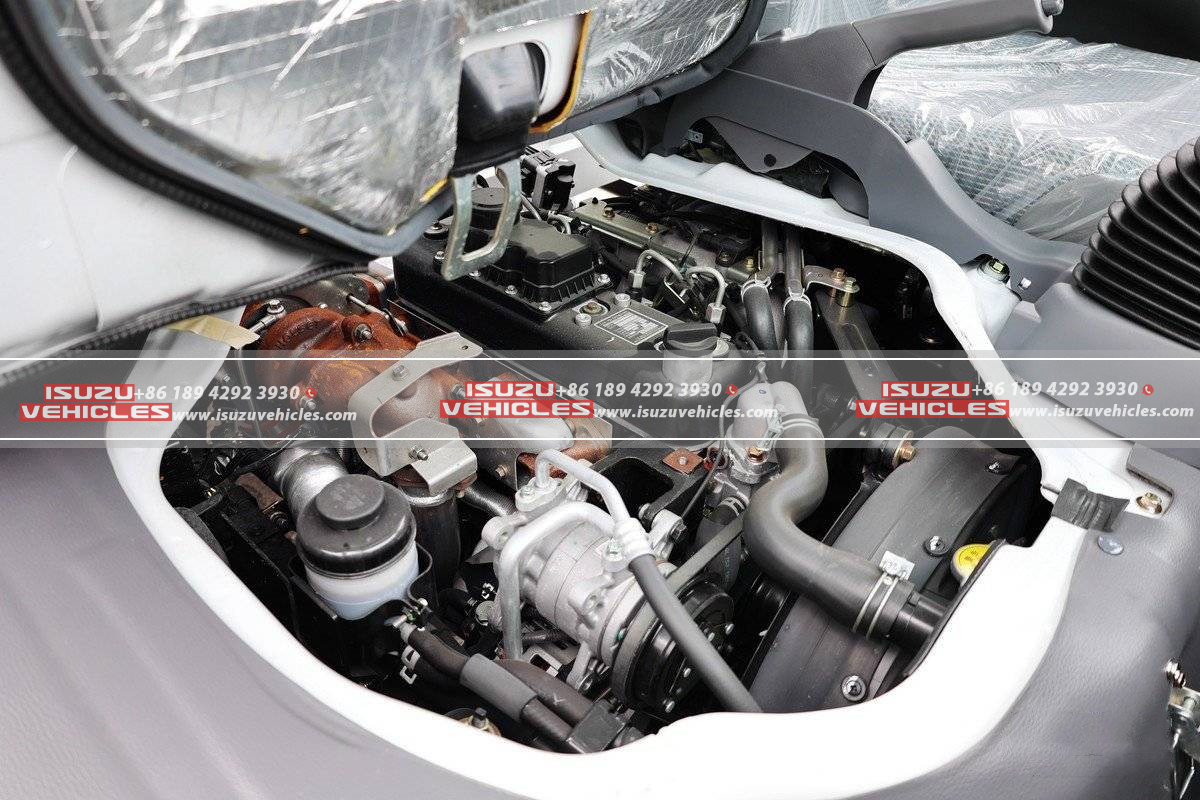Introduction
In the rapidly evolving landscape of urban development, the role of commercial vehicles, particularly trucks, has become increasingly vital. Among the leading manufacturers, ISUZU stands out for its significant contributions to the industry, with a storied history that reflects its commitment to innovation, efficiency, and sustainability. This article delves into ISUZU’s impact on urban development through the evolution of its trucks, highlighting how these vehicles have transformed not only logistics and waste management but also infrastructure and public services in urban environments.
The Origins of ISUZU
Founded in 1916, ISUZU Motors Ltd. originally began as a manufacturer of vehicles for commercial use, with its first truck, the ISUZU Wolseley, rolling off the production line in 1922. As one of the first Japanese automotive companies, ISUZU focused on producing reliable and durable vehicles, which quickly gained traction in various sectors, including agriculture and construction. The brand’s early commitment to quality set the foundation for its future innovations, which would ultimately play a crucial role in the development of urban infrastructure.
ISUZU Trucks and Urban Logistics
Revolutionizing Transportation
One of the most profound impacts ISUZU has had on urban development lies in its contribution to transportation logistics. The introduction of the ISUZU ELF in the 1950s marked a turning point in the commercial vehicle market. This light-duty truck was designed for urban environments, featuring a compact size that allowed for maneuverability in crowded city streets, making it ideal for local deliveries. With its robust design and efficient fuel consumption, the ELF quickly became a staple in various industries, facilitating the movement of goods and services across urban areas.
Meeting Diverse Needs
As cities expanded and the demand for diverse transportation solutions increased, ISUZU responded by developing a range of specialized trucks tailored to specific urban needs. From refrigerated trucks to accommodate the food distribution industry to garbage trucks for waste management, ISUZU has consistently adapted its offerings to meet the evolving requirements of urban living. The introduction of the ISUZU NPR series in the 1980s further exemplified this adaptability, providing a versatile platform that could be customized for numerous applications, thereby enhancing efficiency in urban logistics.

Enhancing Waste Management Solutions
The Role of Garbage Trucks
In conjunction with logistics, ISUZU’s impact on urban development is prominently showcased in its waste management solutions. The company’s garbage trucks, particularly the ISUZU GIGA series, have become synonymous with effective waste collection in cities worldwide. These trucks are equipped with advanced compaction technology, allowing them to handle large volumes of waste while maintaining efficiency and reducing the environmental impact of waste collection.
Sustainable Practices
Moreover, ISUZU has been proactive in incorporating eco-friendly technologies into ISUZU garbage truck, reflecting a broader commitment to sustainability within urban environments. With increasing urban populations, the challenge of waste management has intensified, prompting ISUZU to innovate with cleaner technologies, such as CNG (compressed natural gas) engines. These advancements not only help in reducing emissions but also align with the global push towards greener urban development.
Infrastructure Development
Supporting Urban Growth
The evolution of ISUZU trucks has also played a significant role in infrastructure development within urban areas. The company’s heavy-duty trucks, such as the ISUZU F-series, are instrumental in construction projects, providing the necessary support for the building and maintenance of roads, bridges, and other critical infrastructure. These trucks are designed to transport heavy materials and equipment, facilitating construction activities that are vital to the growth of urban areas.
Collaboration with Municipalities
ISUZU has established strong partnerships with municipal governments and organizations, offering specialized vehicles that cater to public service needs. For instance, ISUZU’s fire trucks, equipped with advanced firefighting technology, are essential for urban safety and emergency response. By ensuring that municipalities have access to reliable vehicles, ISUZU has significantly contributed to enhancing public safety and infrastructure resilience in cities.
Innovations in Urban Mobility
Advancements in Truck Technology
As urban development continues to evolve, so too does the technology behind ISUZU trucks. The company has been at the forefront of incorporating innovative technologies into its vehicle designs, emphasizing connectivity and efficiency. Features such as telematics systems enable fleet managers to monitor vehicle performance, optimize routes, and reduce fuel consumption, thereby enhancing operational efficiency in urban settings.
Embracing Electric Vehicles
Recognizing the shift towards sustainable mobility, ISUZU has also begun to explore electric vehicle (EV) technologies, aiming to align with the global movement towards electrification in transportation. The introduction of electric ISUZU trucks holds the promise of reducing urban air pollution and dependence on fossil fuels, representing a crucial step forward in sustainable urban development.

Case Studies: ISUZU Trucks in Action
Successful Implementations
Across the globe, ISUZU trucks have been successfully integrated into urban infrastructure projects. For instance, cities such as Tokyo and Los Angeles utilize ISUZU garbage trucks for their efficient waste collection systems, demonstrating the effectiveness of these vehicles in handling urban waste challenges. Similarly, ISUZU’s fire trucks are employed by various municipalities to ensure rapid emergency response, highlighting the brand’s commitment to public safety.
Community Impact
The positive impact of ISUZU trucks extends beyond logistics and infrastructure; they contribute to community well-being. ISUZU plays a crucial role in creating livable urban environments by facilitating efficient waste management, enhancing public safety, and supporting local economies through reliable transport solutions. Communities benefit from reduced pollution levels, improved sanitation, and a greater sense of security, all of which are essential for fostering quality urban living.
Conclusion
ISUZU’s impact on urban development is profound and multifaceted, spanning the realms of logistics, waste management, infrastructure, and community well-being. Through its commitment to innovation, sustainability, and reliability, ISUZU has established itself as a key player in shaping the urban landscapes of today and tomorrow. As cities continue to grow and evolve, the role of ISUZU trucks will undoubtedly remain pivotal, ensuring that urban environments are equipped to meet the challenges of the future while enhancing the quality of life for their residents. Through continued innovation and adaptation, ISUZU will maintain its legacy as a leader in the commercial vehicle industry, driving forward the evolution of urban development.
